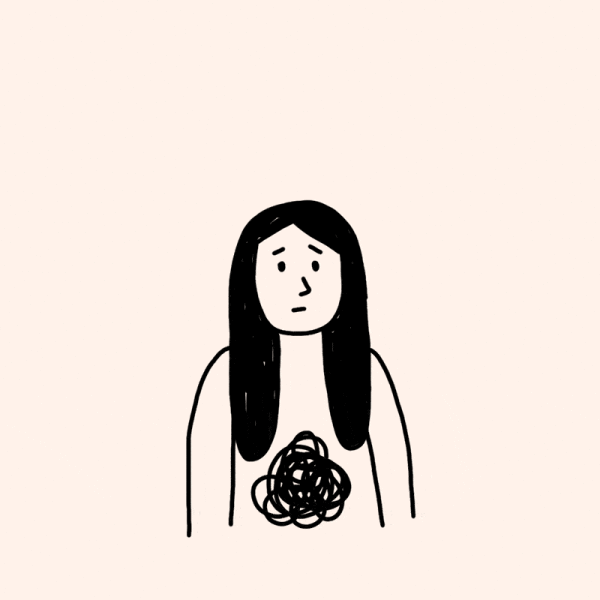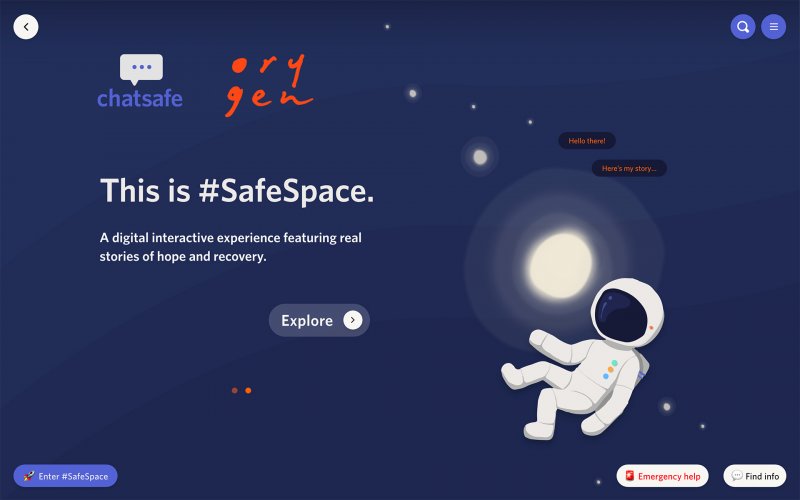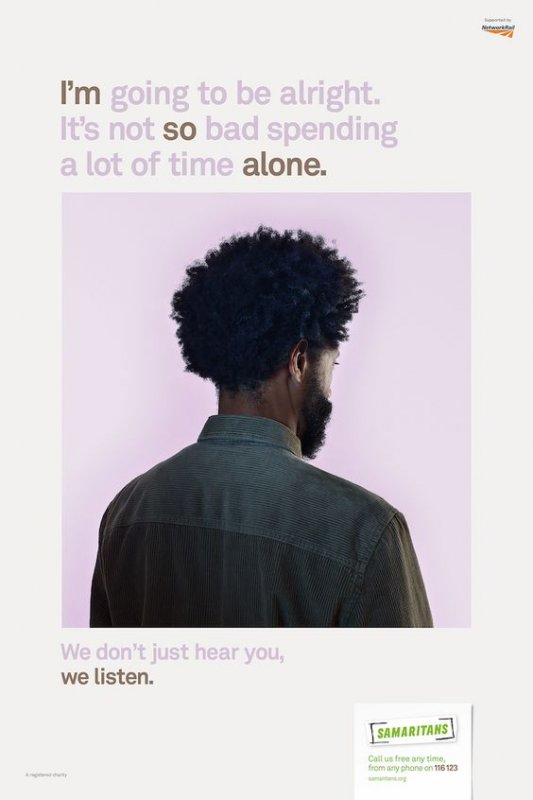- About

 Ashley Green, Anxiety, 2020
Ashley Green, Anxiety, 2020 #safespace campaign, designed by RMIT Comm Design students in 2020
#safespace campaign, designed by RMIT Comm Design students in 2020 Nadav Kander for MullenLowe and U.K. group Samaritans, 2016
Nadav Kander for MullenLowe and U.K. group Samaritans, 2016 Bruce Mao, an incomplete manifesto for growth, 1998
Bruce Mao, an incomplete manifesto for growth, 1998Un/Certain Positions: Ethics & Co-Design
—Nicola St JohnSTRATEGY
17A Friday, 17B Friday
*See myTimetable for Room & TimeStudio Inquiry
In this studio we will explore designing with care. Doing care-full design calls for new ways of thinking of the role of the design, new ways of designing and, and new inclusive co-design processes. We will investigate what an ethics of care in design means. We will be exploring themes of self/care, dis/connection, and un/certainty as communication designers, and how these relate to issues of representation, accessibility, and diversity within design. We will be partnering with Orygen (a youth mental health organisation) to explore sensitivity and care within design approaches, and work on a real world brief to shift narratives around youth mental health.
EngagementWithin this studio you will reflect upon your personal values and responsible methods to evaluate the cultural and social impact of your work and how this relates to a creative care for health and wellbeing. Through a series of client and studio visits, face-to-face and online activities, co-design workshops, and guest lectures we will explore our profession's responsibilities to working with audience members or users, specifically those who will experience the work we create. You will learn to identify and recognise questions in communication design around care, rights, and ethics and be able to articulate, communicate, challenge, and present well-informed debates about these issues.
Communication of knowledgeThe primary focus of the studio is twofold. Firstly, you will develop a campaign (including a strategy and a series of care-fully informed design outcomes) for a youth mental health campaign with Orygen. Secondly, through your campaign research and your response to the brief, you will explore a series of values and principles to develop a framework for your careful design practice. Please be aware we be discussing themes of anxiety, depression, suicide, self-harm, impact of social media, identity formation, and self-care. This studio requires sensitivity, empathy, and approaching design as an inclusive practice of care.
ActivitiesOver the course of the semester you will be required to produce a series of design outcomes to raise awareness, stimulate discussion, and create a sense of connection for young adults. During the semester you will be receiving valuable feedback and presenting your work to key industry representatives from Orygen and Portable. Now, more than ever, we need to look after our mental health and stay connected.
Your campaign development will be group based and apply collaborative methods to define the brief and develop key outcomes to communicate and raise awareness of issues facing young adults. We will be working alongside professional communication students from the School of Media and Communication and you may choose to collaborate with them as part of your campaign development. We will embrace design as a way of opening up conversations, and as a storytelling method. You will need to be available to travel to Orygen's head office in Parkville to attend client briefings and co-design workshops.
Your personal framework of careful design will be individually led, as you will need to personally unpack and expose your own principles, processes, and standpoint. This brief requires you to understand, explore, and celebrate your own identity, values, and position as a way that will create an environment for you to practice an ethic of care in design. You will need to engage and reflect on current debates in industry and explore the role of the designer in society.AssessmentsThere will be three assessment tasks, which interrelate to the themes and design outcomes of this unit.
Brief 1. Youth mental health campaign strategy and design outcomes
Brief 2. Personal framework for care-full design
Brief 3. SKOPre-ReadingKen Garland's First Things First manifesto (Soar, 2002);
Meredith Davis' AIGA Design Futures Trend #4: Core Values Matter (Davis, 2018)Studio PartnerOrygen, centre for youth mental health.
Communities of PracticeDesigning for Social Change, Designing through ImageLinks